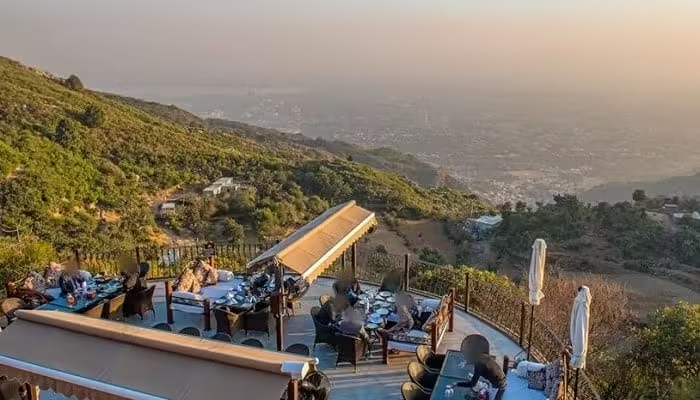In a landmark ruling, the Supreme Court of Pakistan has rejected the review petitions filed by restaurant owners operating within the National Park area, upholding its original decision to close all such establishments. This decision directly impacts well-known restaurants, including the popular Monal restaurant located on Pir Sohawa Road, as the court reaffirmed its commitment to preserving the integrity of the National Park and ensuring that the land is used for its intended purpose.
The ruling comes after months of legal battles, with restaurant owners seeking to overturn the initial verdict that ordered them to shut down operations within three months. Despite having previously assured the court that they would comply with the closure orders, the restaurant owners filed review petitions, challenging the decision. However, the Supreme Court’s dismissal of these petitions marks the final chapter in this case, reinforcing the rule of law and the sanctity of Pakistan’s protected national parklands.
Key Points of the Supreme Court’s Decision
In its judgment, the Supreme Court not only dismissed the review petitions but also withdrew several observations it had previously made in favor of the restaurants. Initially, the court had suggested that restaurant owners could be given priority for leasing land in other areas, should they need to relocate. However, in its latest ruling, the court retracted this observation, clarifying that no such preferential treatment would be granted in the leasing process.
The court’s decision highlights several important legal and environmental principles:
- Voluntary Assurances Not Fulfilled: The court expressed its disapproval of the restaurant owners’ actions, stating that despite their voluntary assurances to close down the restaurants within three months, they chose to file review petitions instead. The court labeled this act as a “mockery and insult” to the judicial process, pointing out the inconsistency between their verbal commitment and their legal actions.
- Environmental Protection and Land Use: The ruling reaffirms the Supreme Court’s commitment to protecting Pakistan’s national parks and environmentally sensitive areas. The court emphasized that the land designated as a national park should not be used for commercial purposes, as this would undermine its intended purpose as a protected area for conservation and public enjoyment.
- Restoration of Parkland: The judgment underscores the need to restore the land currently occupied by restaurants to its original state. This move aligns with the broader environmental goals of maintaining the ecological balance within the national park and ensuring that future generations can enjoy the natural beauty and biodiversity of the area.
Background of the Case: Closure Orders and the Monal Restaurant
The legal dispute surrounding the closure of restaurants in the National Park area dates back to earlier decisions made by the Supreme Court. The court had previously ruled that all restaurants, including the famous Monal restaurant on Pir Sohawa Road, must cease operations within three months. This decision was based on the fact that these establishments were illegally constructed on land designated for conservation purposes.
The Monal restaurant, which had become a popular dining destination for locals and tourists alike due to its scenic location, was one of the main establishments affected by the court’s ruling. Despite its popularity, the court ruled that the restaurant’s presence in the National Park area was in violation of environmental laws and land-use regulations.
Implications of the Supreme Court’s Decision
The Supreme Court’s latest decision has far-reaching implications for the future of land use and environmental protection in Pakistan. By rejecting the review petitions and upholding the original closure orders, the court has sent a strong message about the importance of adhering to environmental regulations and preserving protected areas.
Impact on Restaurant Owners: The court’s decision is a significant blow to restaurant owners who had been hoping for a reprieve. With the review petitions dismissed, these establishments must now cease operations and vacate the land within the National Park area. For many business owners, this ruling represents the end of a long-standing source of revenue and will likely lead to the loss of jobs for their employees.
Future Land Use in Protected Areas: The ruling also sets a precedent for how land in protected areas will be managed in the future. It reinforces the idea that commercial interests cannot override environmental protections, and it may discourage similar attempts by businesses to operate within national parks or other protected zones.
Environmental Conservation: From an environmental perspective, the Supreme Court’s decision is a victory for conservation efforts. By removing commercial establishments from the National Park area, the land can be restored to its natural state, allowing for the preservation of local flora and fauna. This is especially important in a time when urbanization and commercial development continue to encroach upon Pakistan’s natural landscapes.
The Road Ahead: Compliance and Enforcement
With the Supreme Court’s judgment now final, the focus will shift to ensuring compliance with the closure orders. The Capital Development Authority (CDA) has been tasked with overseeing the closure of the restaurants and ensuring that the land is vacated within the stipulated time frame. Additionally, the CDA will be responsible for ensuring that no further commercial activities take place within the National Park area in the future.
The Supreme Court’s judgment also places a responsibility on the CDA to manage the leasing process for any land outside the National Park. The court has explicitly instructed the authority to follow established procedures and not to give any preferential treatment to former restaurant owners when leasing land.
Upholding the Rule of Law
The Supreme Court’s decision to reject the review petitions and uphold the closure of restaurants in the National Park area marks a significant moment in Pakistan’s legal and environmental history. It is a clear indication that the judiciary remains committed to upholding the rule of law and protecting the country’s natural resources from illegal exploitation.
As the restaurants begin the process of shutting down, the focus will shift to restoring the National Park area to its original state, ensuring that this vital piece of Pakistan’s environmental heritage is preserved for future generations.



